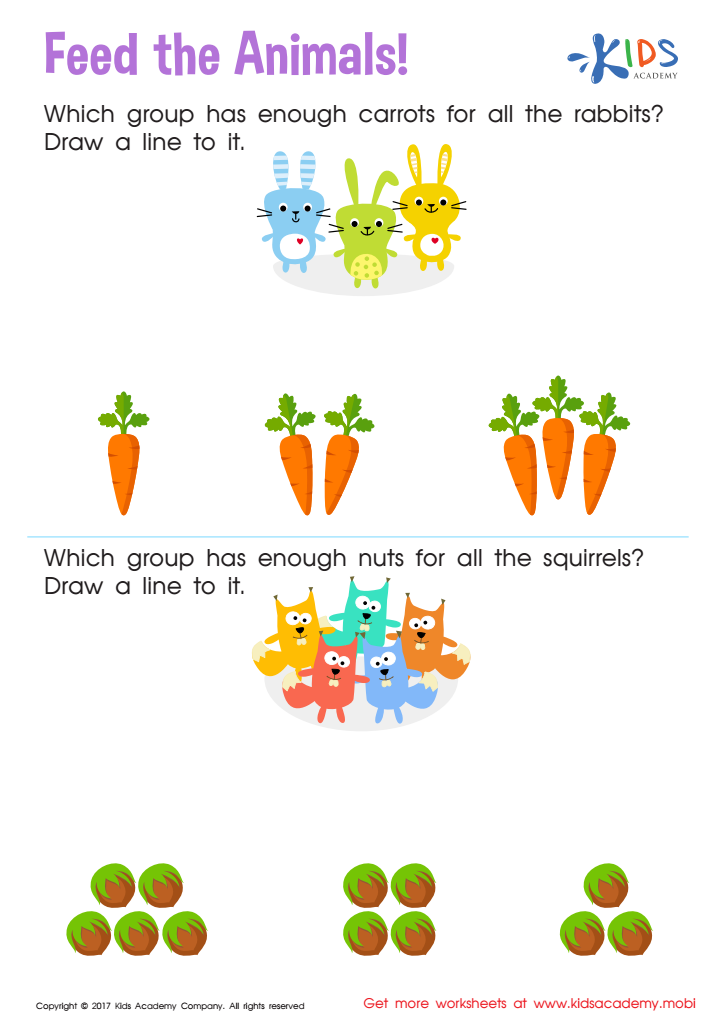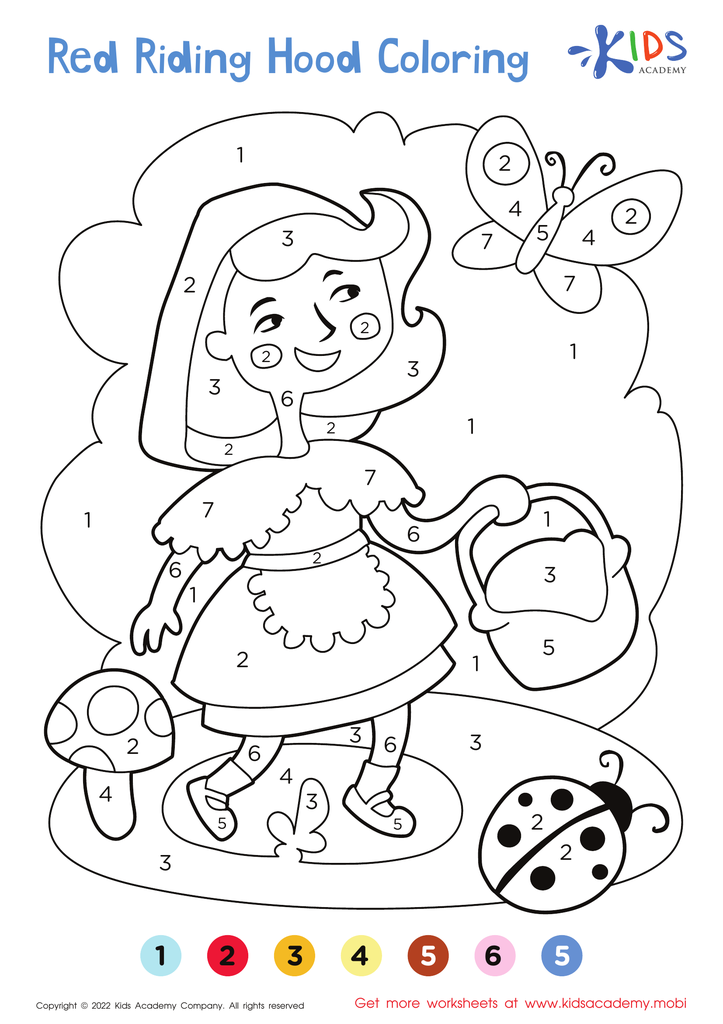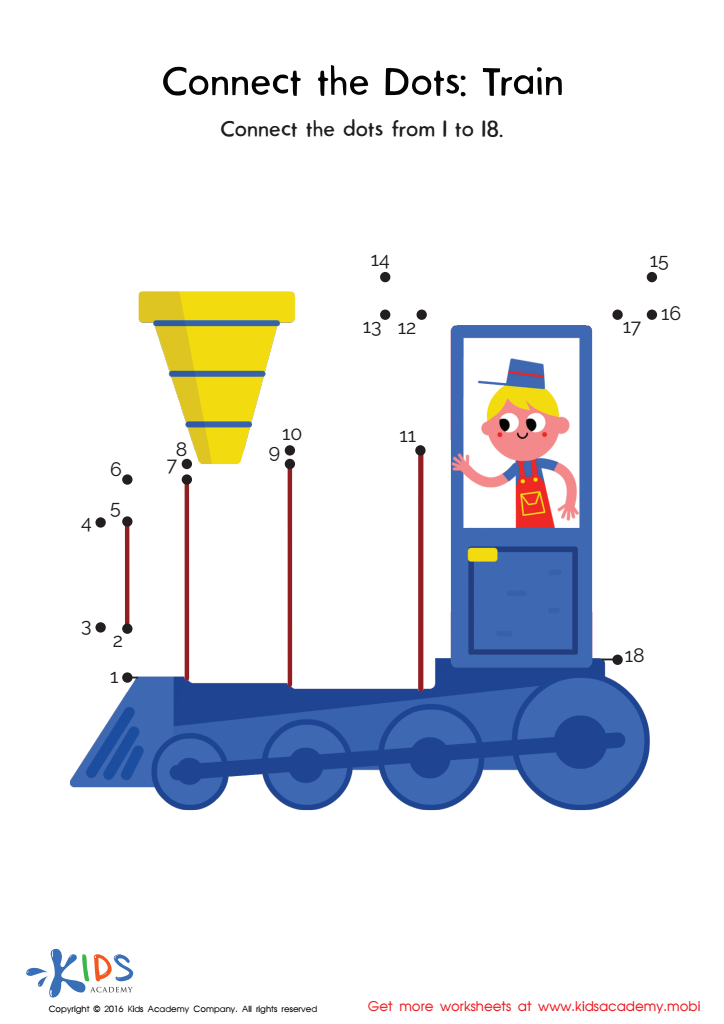Basic Counting Numbers Worksheets for 6-Year-Olds
3 filtered results
-
From - To
Introduce your child to the exciting world of numbers with our "Basic Counting Numbers Worksheets for 6-Year-Olds." Specifically designed for young learners, these engaging, colorful worksheets enhance essential counting skills while making learning fun. Each worksheet provides a variety of activities from counting objects to number tracing, ensuring a wide range of practice opportunities. With themes that capture children's imaginations, our worksheets support both classroom learning and at-home practice. Perfect for building a solid math foundation, these worksheets ensure your child feels confident and prepared for their academic journey. Start counting success today with our expertly crafted worksheets!


Count and Match: Feed the Animals Worksheet


Little Red Riding Hood – Coloring by Numbers
Basic counting numbers serve as the foundation for a child’s entire mathematical understanding and are crucial for developing cognitive and problem-solving skills later in life. By teaching 6-year-olds basic counting, parents and teachers are not just helping them memorize numbers but are fostering critical thinking, patience, discipline, and attention to detail.
Numbers are encountered in day-to-day activities like counting toys, books, or steps, making counting a practical skill that helps children navigate and understand their environment. Understanding concepts such as quantity, order, and one-to-one correspondence (the idea that each object being counted corresponds to one number) is essential for grasping later mathematical ideas, such as addition and subtraction.
Moreover, early success in counting can build a child's confidence, fostering a positive attitude towards mathematics in general. This early positive experience is crucial because mathematical anxiety can stem from a lack of confidence and early struggles. Strong numerical foundations ensure that children are not only prepared for more complex mathematical operations but also enhance their readiness for other academic and life challenges.
In essence, caring about and supporting basic counting skills at a young age equips children with necessary competencies for future learning, contributing to both their intellectual growth and practical life skills.

 Assign to My Students
Assign to My Students




















